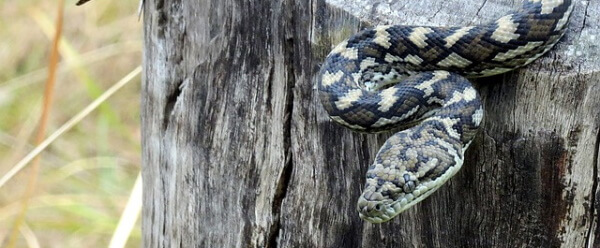Pet tips during the spring season
 With spring at our doorsteps, now it is warm enough to get outside more often with your furry friend. It is also important to be aware of the hidden dangers that can come with the springtime bloom. As a pet owner, it is up to know what to look for and keep an eye out for these dangers that could harm our pets.
With spring at our doorsteps, now it is warm enough to get outside more often with your furry friend. It is also important to be aware of the hidden dangers that can come with the springtime bloom. As a pet owner, it is up to know what to look for and keep an eye out for these dangers that could harm our pets.
There are plants, flowers and the warmth that signals the start of snake season. With so many things to look for, we have compiled a list of things you should know about spring in Australia.
3 Pet dangers of spring:
Allergy season
Spring brings a season change, and with that season change comes allergy season. The pollen released from trees, grasses, flowers, and weeds is released in spring. Most people with allergies start preparing well in advance by buying the appropriate medication to help reduce hay fever symptoms.
However, we should also think about our pets well being too. Your pets can also become victims of this allergy season, and fortunately, vets can help your pets’ symptoms.
Do you know your pet’s allergy signs? You can look out for signs of allergy with the below signs:
- Unusual chewing or licking
- Redness or rash on their skin
- Scratching their belly or groin area
- Scratching or shaking their ears
- Scratching their face
- Hair loss
- Repeat infections (ear or skin)
- Sore eyes
Determining the cause of your pet’s allergy can take some time, but vets can run tests to identify the problem. Once you identify the problem, your vet will be able to find the best treatment pet.
Snake bites
Pet spring dangers can also come in the form of snakes and ticks as your four-legged friend explores. With so many venomous snakes in Australia, your pet has a good chance of being bitten.
Many factors will determine the reaction that your pet can have to a snake bite. Factors such as size, maturity, type, and venom injected all play a part in the severity of your dog or cats’ reaction.
Signs can vary for each animal, but they may experience the following signs:
- Sudden weakness or collapse
- Shaking or twitching of the muscles
- Vomiting
- Dilated pupils that don’t respond to light
- Blood in the urine
- Paralysis of muscles
If your pet experiences a collapse and then appears to recover, this is a sign that a lethal dose of venom and you see a vet immediately. The closer the bite to the heart, the quicker venom is absorbed. If your pet is treated quickly, the higher the survival rate they will have.
 Poisonous Plants and flowers
Poisonous Plants and flowers
While beautiful flowers and plants add to your home’s atmosphere, they can be dangerous for your cat or dog. There are so many household and community plants that pose a great risk to our pets.
Therefore, if you are worried about a plant you may have, the best option is to seek veterinary advice. Check out the lists below to see some common deadly plants you may have.
Plants that are toxic to dogs:
Azaleas
Cherries
Daffodil
Black Locust
Bleeding Heart
Elderberry
Elephant Ear
Foxglove
Golden Chain
Hyacinth
Jasmine
Laurels
Lily of the Valley
Mistletoe
Narcissus
Wandering Jew
Yew
Wisteria
Plants that are toxic to cats:
Lilies
Aglaonema
Aloe Vera
Asparagus fern
Birds of Paradise
Daffodil
Gladiola
Hydrangea
Morning Tongue
Nightshade
Plumosa Fern
Ivy
 Here are some plant poisoning symptoms:
Here are some plant poisoning symptoms:
- Mouth irritation
- Ulcers or skin blisters
- Depressed/lethargic
- Change in appetite
- Vomiting
- Diarrhoea
- Increase drinking and urinating
- Convulsions/Spasms
- Trouble walking
- Coughing
- Excessive Drooling
- Changes in bowel movements
- Skin irritation or redness (itchy skin is a common reaction to Wandering Jew)
Immediately take them to the closest vet or emergency hospital if you think that your pet is poisoned.
Conclusion
In conclusion, spring is the best time to get more active with your pet. There are also some hidden pet dangers that you should look for when exercising with your pet. Pay attention to your pet and contact a vet if you notice anything out of the usual.
At My OwnVet, we are more than help your plans to maintain and control your pet’s weight. If you are concerned about your pet’s weight call our office at 07 3277 6594 or use our online booking to schedule your appointment!
Until next time,
Your friend and vet expert,
MyOwnVet
















 Poisonous Plants and flowers
Poisonous Plants and flowers Here are some plant poisoning symptoms:
Here are some plant poisoning symptoms:




